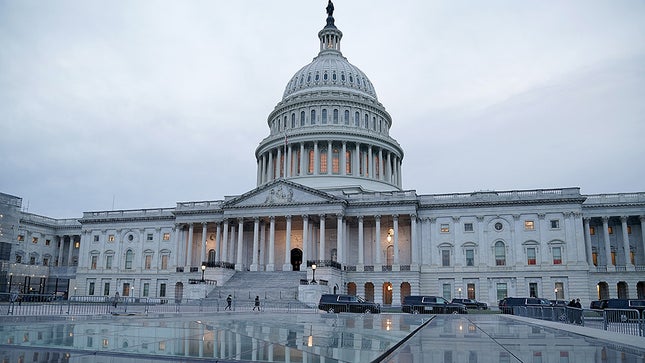The House on Wednesday passed a bill that would require federal judges’ financial disclosure reports to be published online, and the legislation is now headed to President Biden’s desk.
The legislation, dubbed the Courthouse Ethics and Transparency Act, passed in the House by voice vote. The Senate approved the bill by voice vote in February.
If signed into law by Biden, the legislation would amend the Ethics in Government Act of 1978 by requiring that financial disclosure reports submitted by federal judges be published to an online, searchable database that is available to the public.
The bill would also require that federal judges file periodic transaction reports for securities transactions worth more than $1,000 within 45 days of the deal.
Judicial officers, bankruptcy judges and magistrate judges would all be subject to the policy. Supreme Court justices are not currently required to disclose financial transactions.
The House passed its own version of the bill in December in a 422-4 vote.
The bill came after a Wall Street Journal investigation published in September found that 131 federal judges breached federal law between 2010 and 2018 when overseeing lawsuits involving companies they were invested in.
Federal judges are not allowed to preside over cases that involve a party that they themselves, their spouse or their minor children have interest in.
Rep. Deborah Ross (D-N.C.), one of the lawmakers who introduced the bill in the House, said the legislation “will improve transparency, accountability, and public faith in the ability of our courts to carry out fair, impartial justice.”
“This bill will hold federal judges to the same financial transaction disclosure requirements as members of the legislative and executive branches of government, eliminating an unwarranted double standard,” she added in a statement.
Rep. Chip Roy (R-Texas), who also introduced the bill in the House, said, “Trust in our judicial system demands clear impartiality of the judges.”
“In order to improve that trust, judges should be required to disclose their financial interests to the American public, meaning at least adhering to the same standard as currently applied to members of the U.S. House and U.S. Senate,” he said in a statement.
Roy noted that federal judges “are increasingly facing cases that involve corporate and other parties that may impact the financial investments and overall wealth of those judges and create conflicts of interest.”
The bill’s passage comes amid an interest in greater financial transparency in Washington. A number of congressional lawmakers have pushed for legislation that would ban members of Congress from trading stocks.
